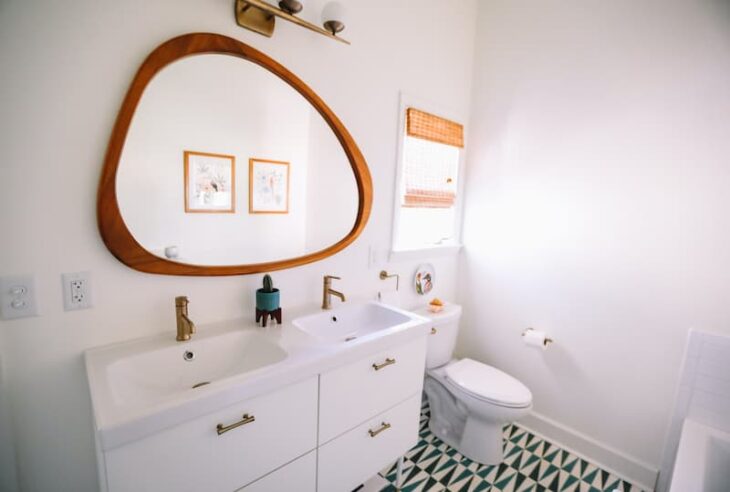Mastering Bathroom Plumbing: Crucial Advice for New Homeowners
Learn MoreHow do you actually feel on the subject of 11 Must-Read Tips for Plumbing a New House?

For new home owners, understanding and preserving bathroom pipes can conserve both money and time by preventing costly problems down the line. Here are some necessary shower room pipes suggestions to help you maintain whatever running efficiently.
Get Ready For Winter
Safeguard your pipes from freezing throughout cold weather by insulating pipelines in unheated areas like cellars, attics, and garages. Throughout extreme chilly, let cold water drip from taps served by exposed pipes to aid protect against freezing.
Schedule Regular Upkeep
Think about scheduling yearly examinations with a licensed plumber. They can spot concerns that you may miss, such as hidden leakages or wear and tear on pipelines and components. Routine maintenance aids expand the life of your plumbing system and can protect against emergencies.
Acquaint Yourself with the Main Shut-Off Valve
Understanding where the primary water shut-off shutoff lies in your home is crucial. This permits you to quickly switch off the water system in case of major leakages or throughout plumbing emergencies, preventing substantial water damage.
Routinely Inspect for Leakages
Small leaks can result in big problems. Frequently inspect under sinks, around toilets, and near pipes fixtures for any kind of indications of leakages. Search for dampness, little drips, or rust. Capturing and repairing leaks early can prevent extra serious damage and conserve water.
Keep Your Water Heater
Guarantee your hot water heater is readied to a proper temperature (commonly about 120 levels Fahrenheit) to prevent hot and minimize power use. Flush the container annually to remove debris build-up, which can decrease the performance and life expectancy of your heater.
Upgrade Your Components
If your home has older components, think about upgrading to much more efficient designs. Modern commodes, showerheads, and taps are made to make use of less water while providing good stress, which can significantly minimize your water bill and ecological footprint.
Beware with DIY Plumbing Fixes
While it's tempting to handle all home repair work by yourself, be cautious with plumbing. Some issues may require expert knowledge, especially if they involve primary water lines or drain repairs. Hiring an expert can often be extra affordable than do it yourself, especially if it avoids further damages.
Do Not Overlook Slow Drains Pipes
If your sink or bathtub is draining pipes slowly, it's frequently an indication of a clog creating. Addressing this early can stop a complete blockage. Utilize a bettor or a plumbing's snake to remove particles. Prevent making use of chemical drain cleansers as they can harm your pipes with time.
Know What Not to Flush
Commodes are not garbage disposals. Prevent purging anything other than toilet tissue and human waste. Items like wipes, womanly hygiene products, and cotton bud need to be disposed of in the garbage to avoid obstructions and drain backups.
Mount Strainers in Drains
Place filters in your sink and bath tub drains to catch hair and other debris before they enter your plumbing system. Cleansing the filters on a regular basis will assist prevent accumulation and keep water moving freely.
Verdict
Comprehending and keeping your home's washroom plumbing can protect against several typical concerns. By adhering to these crucial tips, you can ensure your bathroom stays useful and effective, conserving you time and money in the future.
Essential Plumbing Tips for Homeowners: Keep Your Pipes Flowing Smoothly
As a homeowner, understanding the basics of your plumbing system can save you time, money, and a lot of headaches. Plumbing issues can range from minor annoyances like dripping faucets to major problems like burst pipes that cause significant damage. This guide provides essential tips to help you maintain your plumbing system and tackle common issues.
Understanding Your Plumbing System
Supply System: Brings fresh water into your home from a municipal source or a well. Drain-Waste-Vent System: Removes wastewater and vents sewer gases outside. Fixtures and Appliances: Includes sinks, toilets, showers, dishwashers, and washing machines. Basic Maintenance Tips
Regular Inspections: Periodically check for leaks, corrosion, and other signs of wear and tear. Look under sinks, around toilets, and near water heaters. Know Your Main Shut-Off Valve: In case of a major leak, you’ll need to shut off the water quickly. Ensure everyone in your household knows where the main shut-off valve is located. Prevent Frozen Pipes: In cold climates, insulate exposed pipes and let faucets drip during extreme cold to prevent freezing. Use Strainers: Install strainers in sinks and tubs to catch hair, food particles, and other debris that can cause clogs. Common Plumbing Issues and Solutions
Clogged Drains:
Prevention: Avoid pouring grease down the drain and use drain screens to catch debris. DIY Fix: Use a plunger or a plumbing snake to clear minor clogs. For stubborn clogs, a mixture of baking soda and vinegar can sometimes help. Leaky Faucets:
Prevention: Replace washers and seals regularly. DIY Fix: Turn off the water supply, disassemble the faucet, and replace worn parts.

Call Today